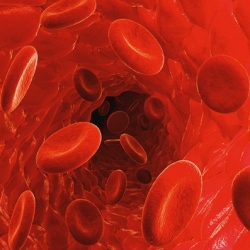
The diagnosis of osteoarthritis (OA) generally relies on physical symptoms, with X-rays or MRI scans used for conformation. But researchers in the UK have identified a biomarker for OA that could lead to a blood test that could diagnose it, and rheumatoid arthritis (RA), years before physical symptoms present themselves.
The research borrows from a blood test used to diagnose RA, which detects anti-citrullinated protein antibodies in the blood. While it had previously been established that such antibodies are present in patients with RA as a result of the autoimmunity response of early-stage RA to the presence of citrullinated proteins (CPs) in their blood, this was not believed to be the case with OA.
However, despite the lack of anti-CP antibodies in OA patients, researchers at the University of Warwick’s Medical School found increased CP levels in both early-stage RA and OA patients. Through the creation of an algorithm of three biomarkers, CPs, anti-CP antibodies and hydroxyproline, a bone-derived amino acid that is the major component of collagen, the researchers found they could potentially detect and discriminate between OA and RA at the early stages, even before damage to the joints has occurred.
"This is a remarkable and unexpected finding," says Dr Naila Rabbani, the lead researcher of the study. "It could help bring early-stage and appropriate treatment for arthritis which gives the best chance of effective treatment."
